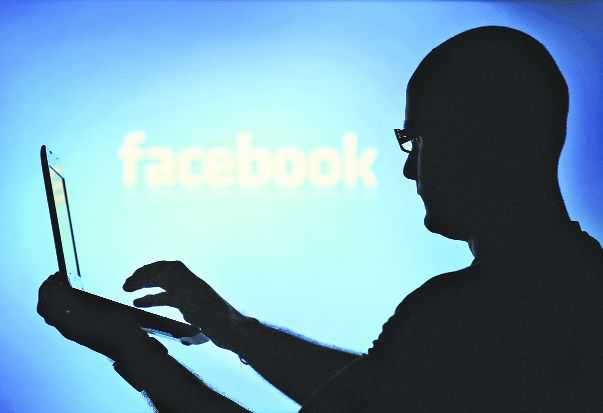
Not in the present moment: Obsession with ‘likes’ and ‘followers’ says nothing about positive self-worth. We need to retain our meditativeness.
AVIJIT PATHAK
Professor of Sociology, JNU
Who can deny that every new piece of technology comes with its own promises and ‘miraculous’ solutions? And in this information-saturated world, Facebook or Twitter does wonders. Rediscovering old friends on Facebook; sharing a vital piece of information — a picture, an article and a poem with loved ones; spreading a brief/politically sensitive remark among ‘followers’; and above all, mobilising people — quickly and instantly — for participating in a demonstration or a protest rally: who would negate these positive possibilities implicit in the technologies of communication?
Yet, the story of this techno-miracle is not so simple and linear. Is it that technology is also disempowering us, and creating a new myth that, because of its magical influence, we fail to decipher? Throughout the world, social psychologists have been writing about the danger of the obsession — Facebook is communication, Facebook is life, and Facebook is the most intimate companion. It affects severely one’s mental landscape. While it activates the instant thrill of ‘recognition’ in a world that is otherwise becoming increasingly anonymous, it causes yet another kind of anxiety and identity-confusion. To define oneself in terms of the number of ‘likes’ and ‘followers’, or to be perpetually preoccupied with something ‘viral’ is by no means an indication of positive self-worth. This new ‘virtual’ society is no less constraining; the desperate urge to post something about one’s deeply intimate and personal life — say, a moment with one’s girlfriend in a Himalayan resort, the picture of a new car one has bought on the occasion of Diwali, or the success story of one’s daughter as she walks through the corridors of the London School of Economics — speaks of our insecurity, our inability to live in silence without self-advertisement.
Not solely that. With Facebook addiction, as we are observing everywhere, one tends to lose a sense of organic and living connectedness with the real world — the world we see, touch, feel, hear and experience. How sad it is when ‘texting’ or ‘messaging’ becomes more real than the direct face-to-face communion. And how frightening it is when, for instance, the art of seeing a mountain peak with one’s own eyes in absolute silence, and feeling it deeply and meditatively is disturbed because of the compulsive urge to use the smartphone, take a series of pictures, and post everything immediately with a longing for the instant ‘likes’! Slowly and eventually we lose patience and concentration. The world evades; what remains is only its technologically mediated representation. It is then no longer possible to sing in tune with William Blake, and see ‘eternity in a wild flower’.
In the age of social media, politics too has acquired a new meaning. We are told, Twitter should smash ‘Patriarchal Brahminism’; or for that matter, with just 140 characters, everything, it seems, is possible, be it a temple at Ayodhya, or a new discourse on body and sexuality by the LGBTQ community. Are we really reading Gandhi’s Hind Swaraj or Marx’s The Communist Manifesto, or Ambedkar’s The Annihilation of Caste with a great deal of seriousness? Or is it that every morning we are madly ‘following’ Twitter messages of political ‘celebrities’ — from Sambit Patra to Shashi Tharoor?
It is possible for this new technology to spread a message quickly, generate a debate, and even mobilise people for a cause, and attract English-speaking/university-educated youth to participate in the farmers’ rally in the national Capital. But then, when we overemphasise the means, and forget the essence, revolution too tends to become a techno-spectacle. It is sad if the slogan of smashing ‘Patriarchal Brahminism’ is packaged in a similar way as a gorgeous picture of Deepika Padukone’s wedding becoming viral.
Revolution is not something to be consumed on Facebook or Twitter. It requires two things. First, it needs a rigorous process of inner transformation — the way we define our needs and priorities, rethink ‘masculine’ or ‘feminine’ roles, relate to people, and engage with nature. Second, it demands an active participation in the real world filled with pain, suffering and longing, say, the way Gandhi with his frail body walked through the villages of Noakhali for extinguishing the fire of communal violence, or the way Jotirao Phule and his wife, despite immense obstacles rooted in a recklessly hierarchical society, started schools for girls of marginalised castes.
In other words, revolution is never ‘instant’ — the way McDonald’s burger is. Revolution needs patience and endurance, participation and sacrifice, psychic transformation and connectedness with real people living in slums, villages and ghettoised localities. Is it that the Twitter revolution is deviating us from the real task, and yet creating an illusion that we are, indeed, doing something?
These questions, let it be clear, are not raised for romanticising a ‘non-modern’ world free from the ‘vices of technology’. Nor are these questions raised for stigmatising or fearing technology. Instead, to be truly modern is to be eternally reflexive. This means the ability to redefine one’s existence on the basis of new challenges. And hence, if the overindulgence with technology diminishes human creativity and connectedness with the living world filled with the fragrance of the physically embodied existence, we must do something about it. We must unlearn what appears to be seductive, and learn a new lesson to live with technology while retaining our grace, autonomy, and meditativeness.



























